33 Life Skills Every Parent Should Teach Their Kids

Ask any parent what the biggest responsibility is when it comes to raising well-rounded kids and you’ll hear the same thing again and again: giving them the skills they need to thrive. And we’re not just talking about learning to read or to drive a car. We’re referring to the bigger picture tools parents should pass on to their progeny. With the help of experts, we’ve rounded up the skills every kid needs to make it in this world.
1
How to say no politely

Of course it’s important to try new things and be open to new experiences—but just as important is the ability to deliver a firm, yet polite “no” when the time calls for it.
“It is difficult to decline something tactfully—many adults even go along with things when they don’t want to,” says psychotherapist Stephanie Wijkstrom, MS, LPC, NBCC, and founder of the Counseling and Wellness Center of Pittsburgh. That’s why it’s critical for parents to teach their kids an early lesson in consent about when it’s appropriate to set boundaries and say “no.”
2
How—and when—to apologize

There’s a big difference between shouting the word “sorry” from across the playground and a sincere, heartfelt apology. Considering how successfully the latter can smooth over tensions—and how quickly the former can heighten them—teaching your kid to say sorry and mean it is invaluable. It’s just as important to teach them when to do it, too—apologizing for things that aren’t their fault can quickly become as problematic as not apologizing for those that are.
3
How to practice self-care

“Most of our children are going to leap into the world and find their place among work and family. They will need to understand how to use their downtime, how to recharge their batteries so that they feel balanced and happy in life,” says Wijkstrom. “Breathing, yoga, walking in nature, having a hobby—these are important and will carry children well beyond their youth into maturely-adjusted old age.”
4
How to deal with overwhelming emotions

Hard-to-navigate emotions can be difficult for folks of any age, but those big feelings can feel especially overwhelming for younger ones. That’s why it’s so important for parents to teach their kids how to deal with those feelings in a healthy way.
“Parents should explicitly teach their kids coping skills for difficult emotions such as anger, anxiety, and sadness,” says licensed clinical psychologist Nastassja Marshall, Ph.D., of Renewal Therapy in Richmond, Virginia. Marshall suggests that parents not only model emotional regulation for their children, but also teach them relaxation exercises, deep breathing techniques, positive self-talk, and ways to work those emotions out through physical activity.
5
How to accept disappointment
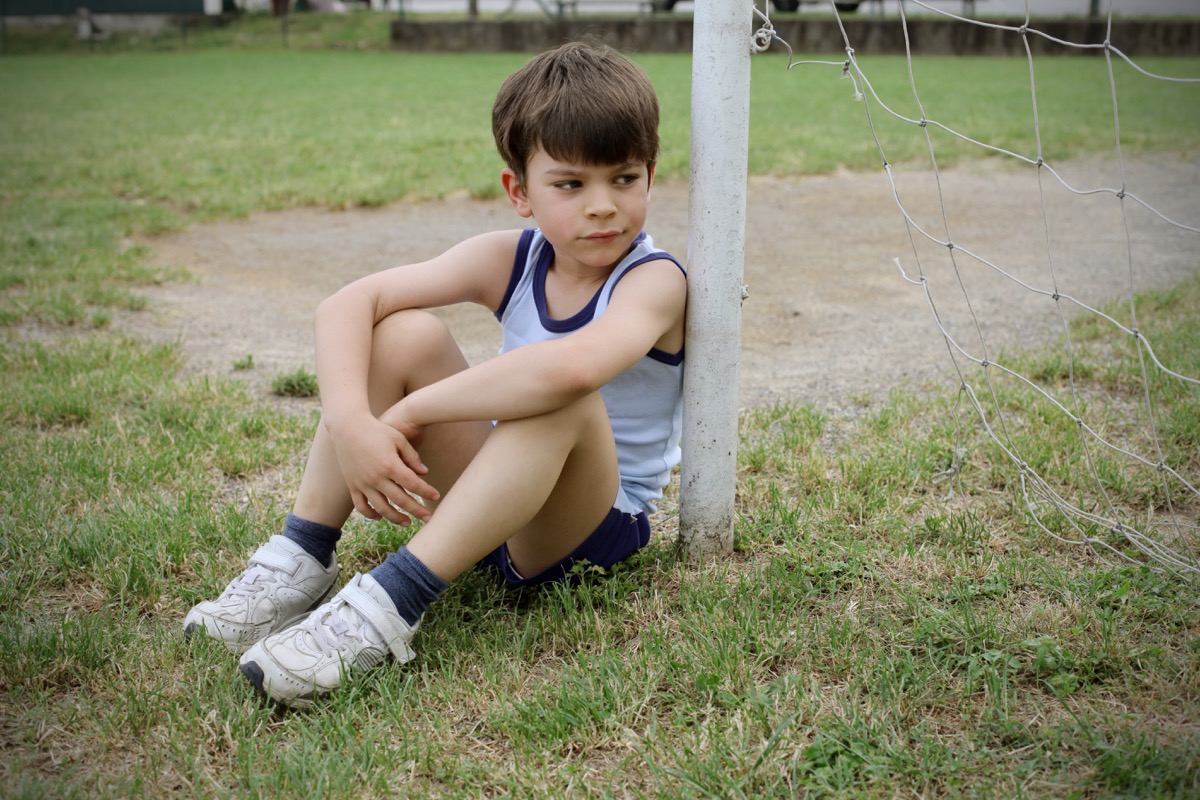
Whether you’re 5 or 65, life comes with its fair share of disappointments. So, the earlier kids learn to move on from the ones they encounter in childhood, the better equipped they’ll be to handle the big ones in adulthood.
“This is helpful because it innately teaches children to accept that the world is not perfect, and that everything will not go their way,” says licensed therapist Ginger Lavender Wilkerson, LMFT. “Disappointment can be a temporary feeling and [does] not define who they are.”
6
How to de-stress
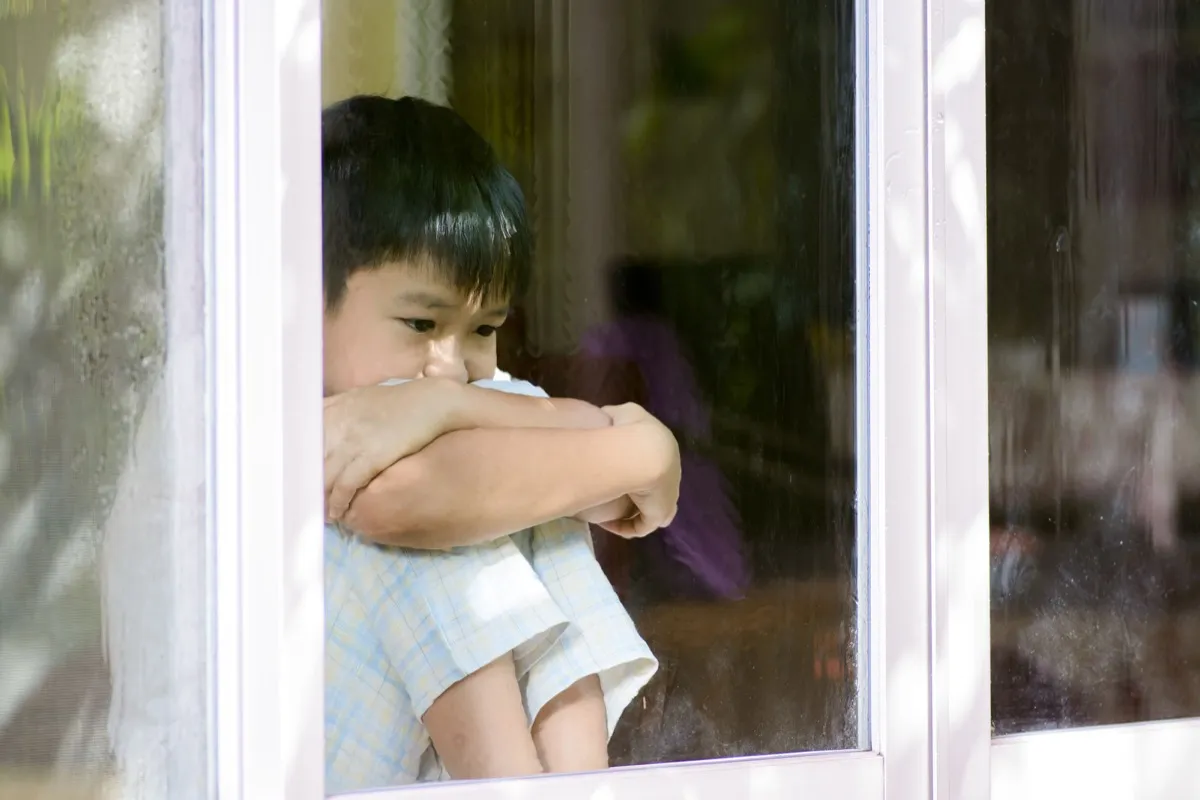
You can’t ensure that your child’s life will be stress-free, but you can—and should—teach them how to cope when they’re reaching their breaking point. “Knowing how to manage stress will reduce the risk for burnout, anxiety, and depression,” says Wilkerson.
7
How to be alone

Learning to embrace alone time is a skill everyone can benefit from. “Parents need to teach their kids to learn to love the time they take by themselves and to trust the wisdom that comes from within when we take that time,” says licensed mental health counselor Jill Sylvester, author of Trust Your Intuition: 100 Ways to Transform Anxiety and Depression for Stronger Mental Health. “Teaching kids to take quiet time each day so that they learn to enjoy being by themselves and to become their own best friend is a best practice.”
8
How to trust their own instincts

Teaching your kids to follow their gut instincts can help keep them safe, healthy, and happy both in childhood and beyond. “Teaching kids how to trust their own inner guidance versus seeking outside sources that so often can be conflicting with our own wants and needs, is a helpful tool as they grow and develop,” says Sylvester.
9
How to be empathetic to others

While many parents try to teach their kids to be tough, being empathetic is every bit as essential for their wellbeing—if not more so.
“It’s important for parents to respect the natural empathy of their children and to nurture and develop it,” says special educator Donna Garfinkel, co-director of New York City-based Early Childhood Associates. “Encourage your child to build empathy by teaching them to help others. Participating in initiatives like toy drives and food pantries can help cultivate empathy.”
10
How to listen effectively

There’s a major difference between truly listening to someone and just waiting for your turn to speak—and the sooner parents can teach their kids the former, the better.
So, how does one go about honing this skill? “Reading to them, watching a movie together, or telling stories can help develop listening skills,” suggests Garfinkel. “Ask questions about stories and ask them to support their responses with material/information from the story.”
11
How to work toward long-term goals
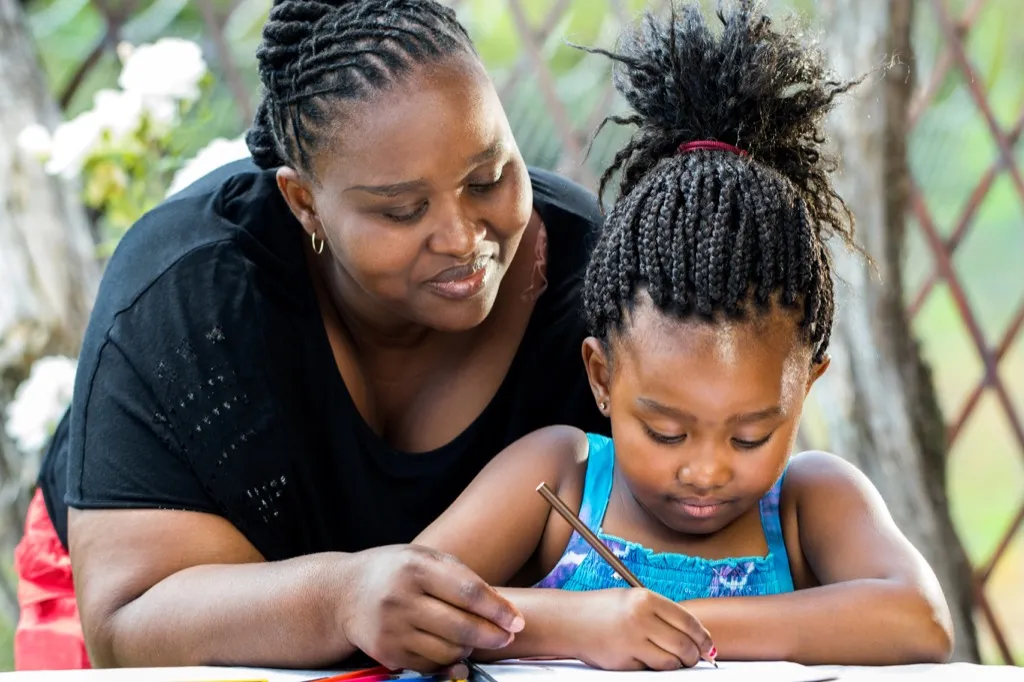
Instant gratification may be nice, but teaching your kids to work toward long-term goals will be invaluable in their adolescence and adulthood. “Teach children to persevere and to not give up on what’s important to them,” says Garfinkel. “Working toward a long term-goal, [like] developing academic or athletic skills or saving for a special purchase, can help them understand the value of perseverance.”
12
How to work well with others
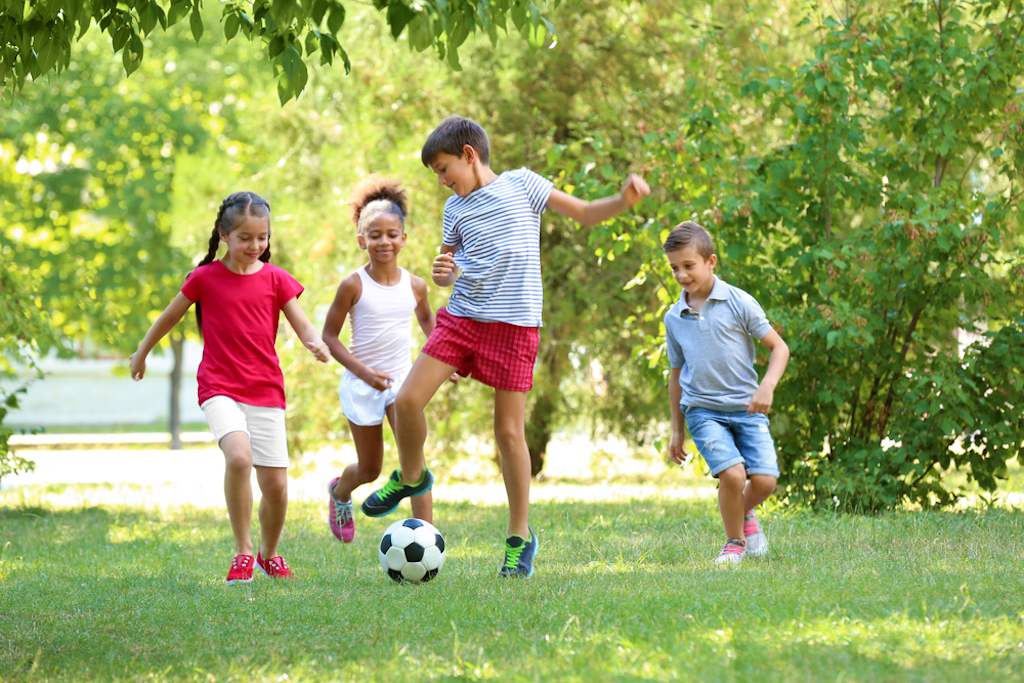
Playing well with others is a skill that will serve your kids well long past childhood. “Sharing and taking turns while playing can reinforce positive social skills that will carry over into the future,” says Garfinkel.
13
How to care for another living thing

Whether it’s a fish, a plant, or a sibling, teaching your child how to care for another living thing is an important skill they won’t learn in a classroom. Not only can doing so help kids empathize, having something to care for may even help reduce their stress. A 2010 study published in Anxiety, Stress, & Coping found that petting animals—whether soft and furry or hard-shelled—helped reduce participants’ anxiety.
14
How to greet someone politely

A firm handshake and friendly “hello” can get you far in life, which is why it’s never too early to teach your kids how to greet people properly. “Children should learn how to give a solid handshake while introducing themselves to someone new,” says certified child anxiety expert Colleen Wildenhouse, founder of Good Bye Anxiety, Hello Joy, LLC. “It is important that children learn to have confidence in who they are and what they have to offer to others.”
15
How to meet new people

Not every kid is an extrovert—and that’s okay!—but it pays to know how to meet people, even when your kids are young. Teach your children that there’s no reason to be afraid of confidently marching up to another child on the playground and asking them to play. It will serve them well for years to come.
16
How to handle rejection

Unfortunately, the answer to that question on the playground isn’t always going to be a resounding “yes.” Whether they didn’t get the promotion they’d hoped for, the person they asked on a date turned them down, or they didn’t win the talent show, it’s important that kids know how to lose gracefully.
17
How to problem-solve without a parent’s help

Problem-solving is a skill that’s typically honed over a lifetime, but having kids tackle their own issues starting at an early age will inevitably make things easier as they get older.
“Encourage them to problem-solve on their own,” says licensed mental health counselor and therapist Barb Shepard. “Issue with a teacher? Prep them on how to go talk to that teacher themselves. Jumping in to rescue your kids from situations that are uncomfortable is not always helpful—in fact, it can prevent your child from learning to work through challenges and conflict.”
18
How to present themselves professionally

Whether your kid is applying for an internship or looking for a job after graduating from college, professionalism counts every step of the way.
“College can be a huge shock for teenagers as they take their first step into the world of professionalism,” says Shepard. “Every interaction with a professor who could be a reference or a job connection in the future should be treated like an interview. Ditch the sweatpants-to-class look, use good grammar in emails, and turn in assignments on time.”
19
How to apply for a job

If you’re eager for your children to become self-sufficient adults, financial education is key. But before you can even deliver your lecture on Budgeting 101, your kid needs to know how to apply for a job. Teach them how to look for jobs using sites like Indeed or Glassdoor, give them the skinny on interview-appropriate attire, and always make sure they know the basics, like how to fill out an application correctly.
20
How to work hard
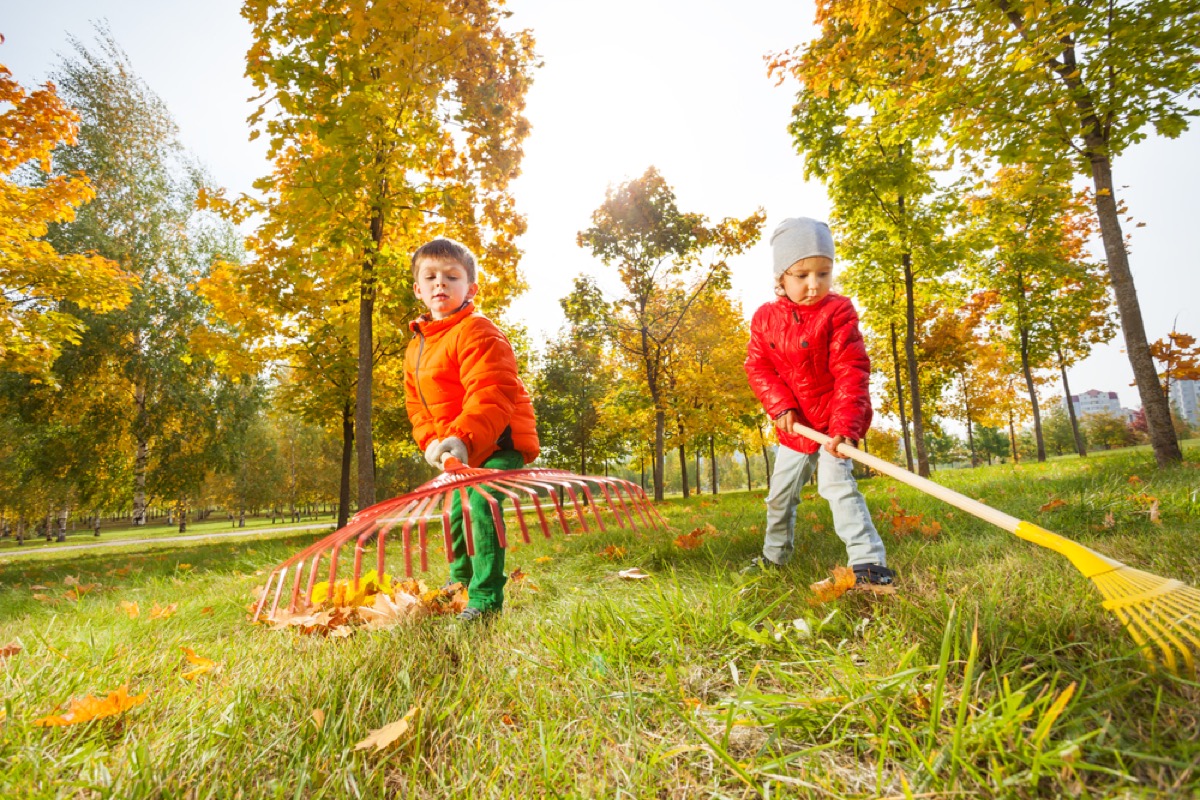
At any age, work can be a huge source of stress. That’s why it’s so important that parents teach their kids how to work hard—as well as some coping skills for when things are stressful on the job.
“Children should learn how to work and know the value and accomplishment of a hard day’s work,” says Kalyn Hochstrat, founder of Kalyn Hochstrat Investment Advisor, LLC in Midvale, Idaho. “If taught the value of work at a young age, that gift will benefit them their entire lives, no matter what industry they work in.”
21
How to meet deadlines

Yes, even adults procrastinate, but the sooner your kids can learn to get things done ahead of a deadline, the better. After all, it’s not like you particularly relish putting together dioramas well into the wee hours of the morning, either.
22
How to build credit

Having good credit makes life easier, whether you’re buying a car or applying for a mortgage—and finance pros say that parents should be teaching their kids how to build good credit from an early age.
“They should know what is debt, what is credit, and how to avoid borrowing too much money,” says financial educator Cleo Childress, founder of Cleo Yoga Finance in Dallas, Texas. “They should understand what a credit report is and how negative credit history can affect their lives.”
23
How to save money

Even if your kid is earning just a dollar a week in allowance, learning how to save some of that money now can yield major rewards when they’re nearing adulthood.
“They should understand the value in saving and investing,” says Childress. “It’s okay to have material things and enjoy experiences, but also teach them how they should save and invest on a consistent basis so they can have more financial freedom to live the lifestyles they desire.”
24
How to budget

While avoiding the hand-to-mouth lifestyle as an adult is often easier said than done, giving your kids the financial tools they need to effectively budget is invaluable. “They should know how to avoid living paycheck-to-paycheck,” says Childress. “Teach them how to earn money, then save/invest, spend, and give so that they are able to still support themselves if their incomes stop or slow down.”
25
How to understand their taxes

Taxes can be confusing even to adults, but talking to kids about them from an early age can help them navigate those murky waters more easily later on. An easy way to do this? Create separate jars for spending, saving, and taxes with their allowance each week so they can better understand how much money to allocate in their budget when they finally bring home that first paycheck.
26
How to spot a scam

Whether they’ve got a foreign prince calling them or someone on Craigslist who promises that a luxury apartment really rents for just $300 a month, it’s important that your child knows a scam when they see one.
27
How to take care of their belongings
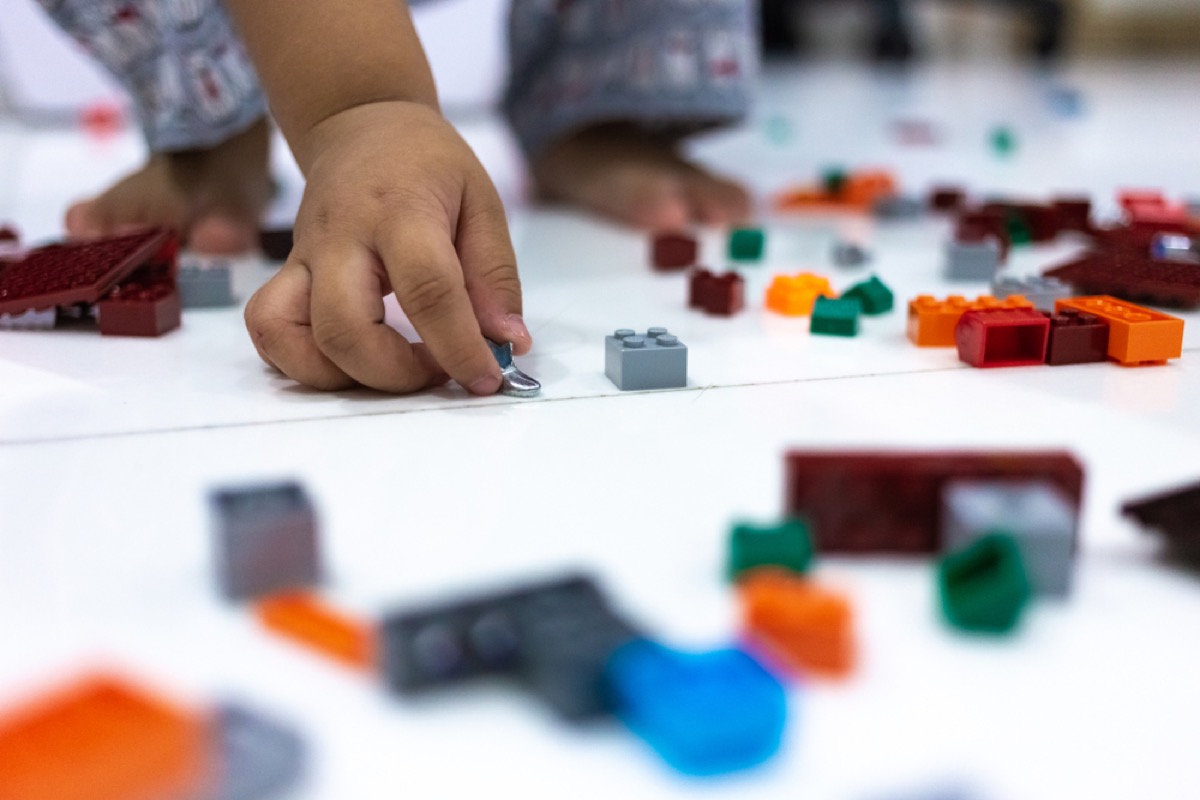
How can you effectively teach your children the value of money if you don’t teach them how to simultaneously care for their things? At a young age, that may mean picking up their toys from the bedroom floor so they don’t get stepped on, and as they get older, it can mean treating a stain on clothing immediately before it sets in, regularly mowing the lawn, or doing software updates on their devices.
28
How to do laundry

According to a 2013 study published in the Family & Consumer Research Journal, baby boomers and members of Gen X lapped millennials when it came to their clothing care skills. That’s why it’s essential that parents teach their kids these skills at home—after all, who wants a panicked 4 a.m. phone call when the washing machine is overflowing with bubbles, or a bill from a tailor when a button comes loose?
29
How to change a tire
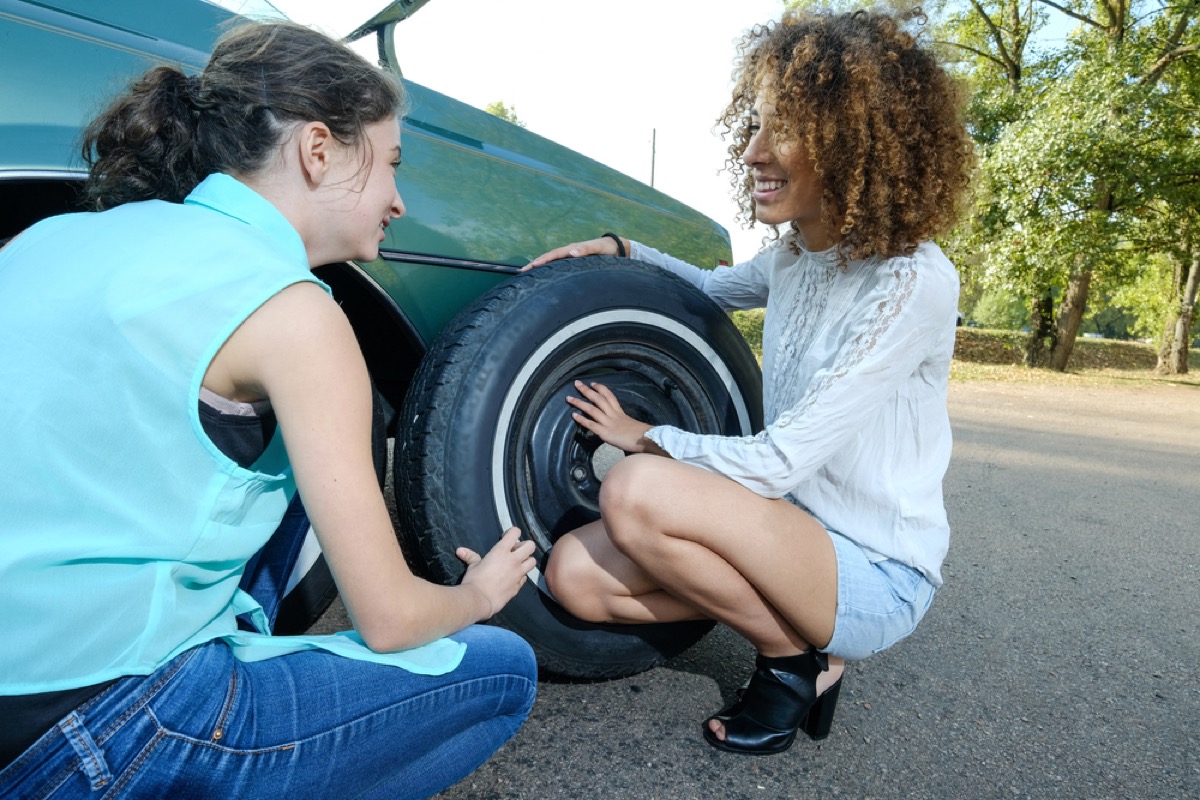
Everyone gets a flat tire from time to time. And instead of having your kid rely on expensive tow services or potentially not-so-well-intentioned strangers, teaching them how to pop on that spare will keep them safer in the long run.
30
How to practice gratitude

A little gratitude goes a long way in life, and teaching your kids to be truly grateful to those who have been kind to them will serve them well over the years. You can start this practice at a young age by having them write thank-you notes for birthday presents, and make sure they continue doing the same as they age, like sending thank-you emails after job interviews.
31
How to express love for others

Saying “I love you” isn’t the only way to express your love for someone, nor is it a phrase that should only be used in romantic contexts. Caring for others, doing kind things for them, and saying those three little words to platonic friends can help kids feel emotionally fulfilled in childhood and beyond.
32
How to break up with someone

And being able to end relationships in a compassionate way is important, too. “There is no class for this, but we know that every child and adult will need to have a break up eventually,” says Wijkstrom. “We should encourage children to do this by offering closure, and anticipating emotional pain along the way.”
33
How to ask for help

Having the tools to get you through day-to-day life is admirable, but knowing when you need a hand—and not being ashamed to ask for one—is just as important. Once your kids have left the nest, it’s going to be essential for them to be comfortable asking others for help, whether hanging a framed photo on the wall or learning a new skill at work. And for some additions to your own arsenal of abilities, check out these 40 Skills Everyone Over 40 Should Know.
To discover more amazing secrets about living your best life, click here to follow us on Instagram!